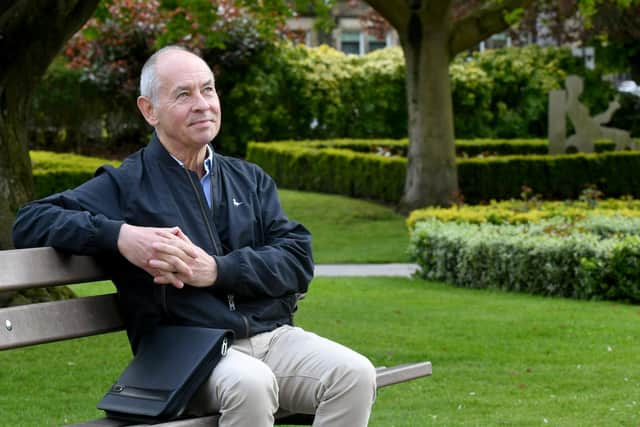Harrogate father whose son took own life speaks out on 'misconception' that only those who are mentally ill die by suicide


Steve Phillip lost his 34-year-old son Jordan in 2019 after he died by suicide, and the father shared a picture on LinkedIn earlier this month revealing the pair's last messages to one another in a heartbreaking post that went viral.
Mr Phillip, from Harrogate, has since spoken out following World Mental Health Awareness Week earlier this month, correcting what he says are 'misconceptions' about the issue.
Advertisement
Hide AdAdvertisement
Hide AdHe said other misunderstandings about suicide were also that it most commonly affected younger people, and that those who chose to end their lives were being "selfish" or "cowardly".


"A lot of people think that it's always people with poor mental health who take their own lives – people who suffer severe physical pain can also feel this is the only way to escape the pain," said Mr Phillip.
His comments were backed by Harry Bliss, a Sheffield-based entrepreneur who set up the company Champion Health - encouraging people to seek help through charities such as Mind and Papyrus - after losing a friend to suicide following an acute bout of workplace stress.
He said that stigmas surrounding suicide still remained, especially among men.
Advertisement
Hide AdAdvertisement
Hide Ad"What we know from the data we collect at Champion Health, is that women are more likely to experience a diagnosed mental health disorder in any given year," said Mr Bliss, 26.


"Yet men are three times more likely to take their own lives. This data suggests that men aren't seeking the support and diagnoses as commonly as women."
He added: "The most common misconception is that suicide isn't just an issue for young people.
"The data shows that whilst young people are being affected by suicide, men aged between 45-49 are the most at risk.
Advertisement
Hide AdAdvertisement
Hide Ad"Another misconception is that suicidal thoughts are only experienced by people with long-term mental health conditions. It's crucial to remember that our mental health is flexible, it sits on a continuum, and this changes throughout or day-to-day lives."
Mr Phillip spoke to The Yorkshire Post in May after he shared a screenshot of a seemingly-normal conversation between himself and Jordan shortly before he took his life in December 2019.
His post has been viewed more than five million times and shared by thousands, with dozens contacting him to talk in emotional exchanges.
Mr Phillip has since set up The Jordan Legacy, a charity tasked with preventing suicide.
Advertisement
Hide AdAdvertisement
Hide Ad"From my experience, men feel they should be in control of their emotions and circumstances," he added.
"It's the Alpha male syndrome. By displaying their emotions, this is a potential sign of weakness. Men also tend to form fewer or smaller social circles, perhaps having one or two very close and trusted friends.
"Women also tend to enter the NHS system much earlier in life than men and more frequently too, for example when they have first period, for birth control, and with pregnancy.
Earlier this month the Government announced £17 million was to be spent upgrading mental health support in education as part of Mental Health Awareness Week.
Advertisement
Hide AdAdvertisement
Hide AdMr Phillip said that while funding was "stemming the flow" of the crisis, it was "dealing with the source of the problem".
He added: "We do need to go right back to school and provide our children with more self-confidence and resilience and emotional intelligence, which will allow them to cope with the pressures of modern day society."
Anyone who is worried about their, or someone's else's, mental health, can contact the Samaritans 24 hours a day, seven days a week, on 116 123, or by emailing [email protected].